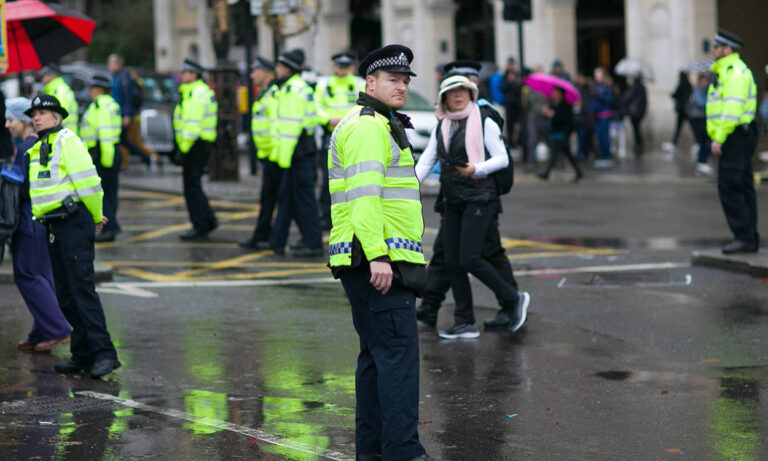Report finds UK police hire criminals and sexual predators while officer resignations continue to rise
A damming 2022 report has found that hundreds of individuals who should have failed their vetting checks may be serving as active police officers. Amid serious concerns regarding the leadership within UK law enforcement, government figures also indicate that mass numbers of officers are leaving the force—proving that a position in the police is no longer considered a “job for life.”
The recently released report—which was commissioned by the former Home Secretary, Priti Patel—was conducted by His Majesty’s Inspectorate of Constabulary and Fire & Rescue Services (HMICFRS) and exposed a systemic problem with the current vetting process.
After looking at eight forces across the country, the watchdog deemed leading officers’ decisions as “questionable at best.” Of 725 sample cases closely examined in the review, there were concerns about 131 officers cleared to serve in law enforcement. However, the report clarified that the true total could be much higher.
The extensive investigation went on to note: “Identifying unsuitable applicants should start during the recruitment process. Too often, this process is not rigorous enough. Some forces appoint applicants without seeking references from previous employers or checking their educational qualifications.”
“Some forces have failed to consider the link between misogynistic behaviour towards colleagues and similar behaviour towards members of the public. And some are not responding robustly enough when presented with misogynistic behaviour in the workplace. We examined 264 complaint and misconduct investigations. In almost one in five cases, we were unimpressed by the force’s decision-making,” the report continued.
Since the murder of Sarah Everard in 2021 at the hands of a serving police officer, societal discussions have been ramped up regarding the failings of the UK law enforcement to properly vet their officers. As the report states, one of the most significant issues presently is the police’s lacklustre approach to detecting and dealing with misogyny and misconduct in its own workforce.
According to the BBC, one of the most common forms of misconduct is the harassment or assault of an individual that had previously sought help from the police. In one example, Nicola Brookes explained how a Sussex police inspector targeted her for a sexual relationship in 2015 because she was in bad health and a victim of stalking.
Although she consented to sex on one occasion, the officer was sacked for gross misconduct in 2020 because he “abused his position to deliberately engage in intimate relations” with several women, an investigation found. Brookes told the BBC that if he had been regularly vetted, a relationship with another woman in 2012 could have been investigated earlier.
Public scandals such as this have plagued the police over the past few years. Ranging from displays of overt racism, sexual assault allegations and prolific child sexual offences. It’s safe to say that public confidence in the force has massively depreciated. According to a YouGov poll from March, the number of Britons saying the police are doing a good job has fallen from 75 per cent to 53 per cent in just two years.
That’s not where the problems stop either. It appears that the core organisational issues that exist within the police are not only letting in unsuitable candidates, but also forcing decent officers out.
Government figures have revealed that the number of voluntary resignations from the police service in England and Wales has increased by 72 per cent, from 1,996 in 2021 to 3,433 in 2022. Voluntary resignations now account for 42 per cent of all police leavers, compared to 33 per cent in the previous year.
The Conversation recently spoke with 100 former police officers across the UK to try and understand the reasoning behind such a mass exodus. The most common response: poor leadership and organisation.
According to the former officers, the culture of the police had many feeling as though the force is not only reluctant, but strongly opposed, to update or change its practices. This resistance to modernity will only hinder progress, and if the police continue to heed a “culture of defensiveness,” then it says very little for the future of law enforcement.






